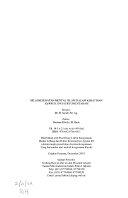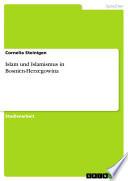Ibn Al-Nafis
Please note that the content of this book primarily consists of articles available from Wikipedia or other free sources online. Pages: 25. Chapters: Ibn al-Nafis, Qazi Mian Muhammad Amjad, Pir Meher Ali Shah, Muhammad Sayyid Tantawy, Ab an fa, Muhammad ibn Idris ash-Shafii, Abu Mansur Maturidi, Yahya ibn Sharaf al-Nawawi, Al-Juwayni, Ibn Hajar al-Haytami, Muhammed Hamdi Yaz r, Muhammad Hamidullah, Khaled Abou El Fadl, Molla emseddin Fenari, Tanzil-ur-Rahman, Al-Qasim ibn Muhammad ibn Abi Bakr, Ibn 'Ulayya, Abu Yusuf Ya'qub, Awn ad-Din ibn Hubayra, Ahmad ibn Naqib al-Misri. Excerpt: Ala-al-din abu Al-Hassan Ali ibn Abi-Hazm al-Qarshi al-Dimashqi (Arabic: ), known as Ibn al-Nafis (Arabic: ), was an Arab physician who is mostly famous for being the first to describe the pulmonary circulation of the blood. He was born in 1213 in Damascus. He attended the Medical College Hospital (Bimaristan Al-Noori) in Damascus. Apart from medicine, Ibn al-Nafis learned jurisprudence, literature and theology. He became an expert on the Shafi'i school of jurisprudence and an expert physician. In 1236, Al-Nafis moved to Egypt. He worked at the Al-Nassri Hospital, and subsequently at the Al-Mansouri Hospital, where he became chief of physicians and the Sultan's personal physician. When he died in 1288, he donated his house, library and clinic to the Mansuriya Hospital. The opening page of one of Ibn al-Nafis's medical works. This is probably a copy made in India during the 17th or 18th century.The most voluminous of his books is Al-Shamil fi al-Tibb, which was planned to be an encyclopedia comprising 300 volumes, but was not completed as a result of his death. The manuscript is available in Damascus. His book on ophthalmology is largely an original contribution. His most famous book is The Summary of Law (Mujaz al-Qanun). Another famous book, embodying his original contribution, was on the effects of diet on health, en...
Please note that the content of this book primarily consists of articles available from Wikipedia or other free sources online.









